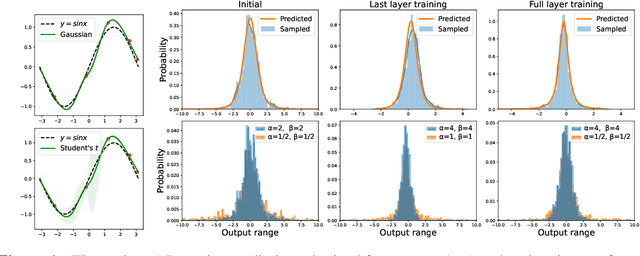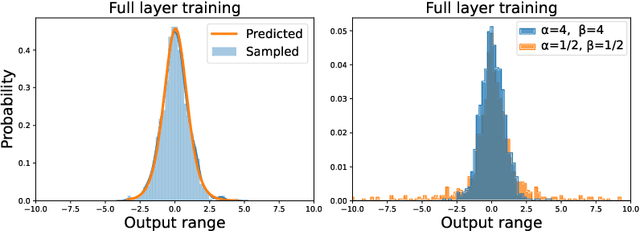Eunggu Yun
Martingale Posterior Neural Processes
Apr 19, 2023



Abstract:A Neural Process (NP) estimates a stochastic process implicitly defined with neural networks given a stream of data, rather than pre-specifying priors already known, such as Gaussian processes. An ideal NP would learn everything from data without any inductive biases, but in practice, we often restrict the class of stochastic processes for the ease of estimation. One such restriction is the use of a finite-dimensional latent variable accounting for the uncertainty in the functions drawn from NPs. Some recent works show that this can be improved with more "data-driven" source of uncertainty such as bootstrapping. In this work, we take a different approach based on the martingale posterior, a recently developed alternative to Bayesian inference. For the martingale posterior, instead of specifying prior-likelihood pairs, a predictive distribution for future data is specified. Under specific conditions on the predictive distribution, it can be shown that the uncertainty in the generated future data actually corresponds to the uncertainty of the implicitly defined Bayesian posteriors. Based on this result, instead of assuming any form of the latent variables, we equip a NP with a predictive distribution implicitly defined with neural networks and use the corresponding martingale posteriors as the source of uncertainty. The resulting model, which we name as Martingale Posterior Neural Process (MPNP), is demonstrated to outperform baselines on various tasks.
Scale Mixtures of Neural Network Gaussian Processes
Jul 03, 2021



Abstract:Recent works have revealed that infinitely-wide feed-forward or recurrent neural networks of any architecture correspond to Gaussian processes referred to as $\mathrm{NNGP}$. While these works have extended the class of neural networks converging to Gaussian processes significantly, however, there has been little focus on broadening the class of stochastic processes that such neural networks converge to. In this work, inspired by the scale mixture of Gaussian random variables, we propose the scale mixture of $\mathrm{NNGP}$ for which we introduce a prior distribution on the scale of the last-layer parameters. We show that simply introducing a scale prior on the last-layer parameters can turn infinitely-wide neural networks of any architecture into a richer class of stochastic processes. Especially, with certain scale priors, we obtain heavy-tailed stochastic processes, and we recover Student's $t$ processes in the case of inverse gamma priors. We further analyze the distributions of the neural networks initialized with our prior setting and trained with gradient descents and obtain similar results as for $\mathrm{NNGP}$. We present a practical posterior-inference algorithm for the scale mixture of $\mathrm{NNGP}$ and empirically demonstrate its usefulness on regression and classification tasks.
 Add to Chrome
Add to Chrome Add to Firefox
Add to Firefox Add to Edge
Add to Edge